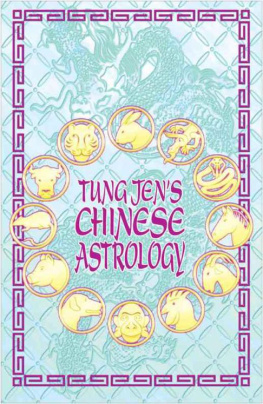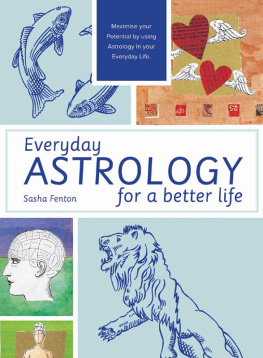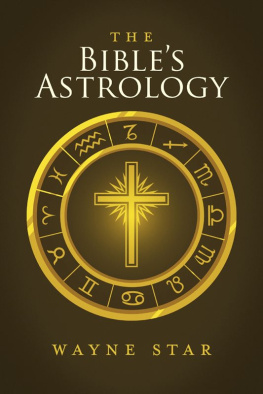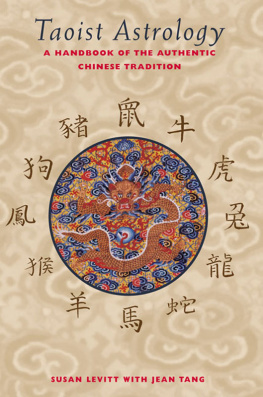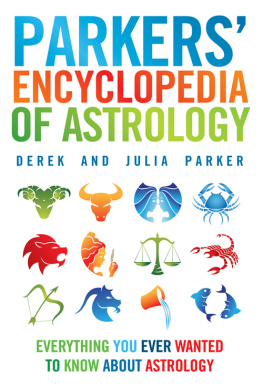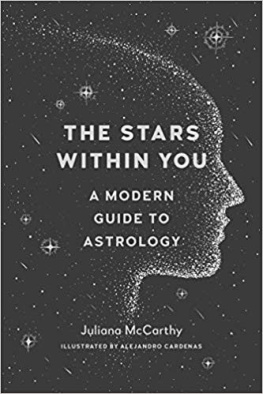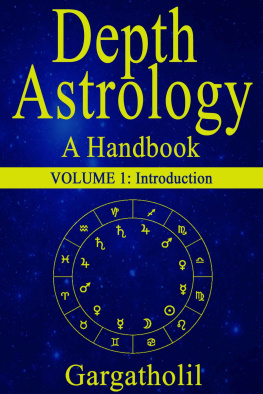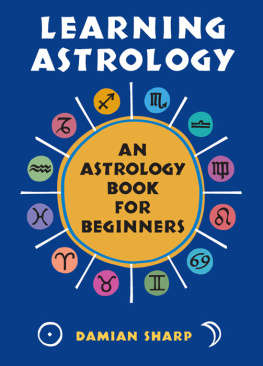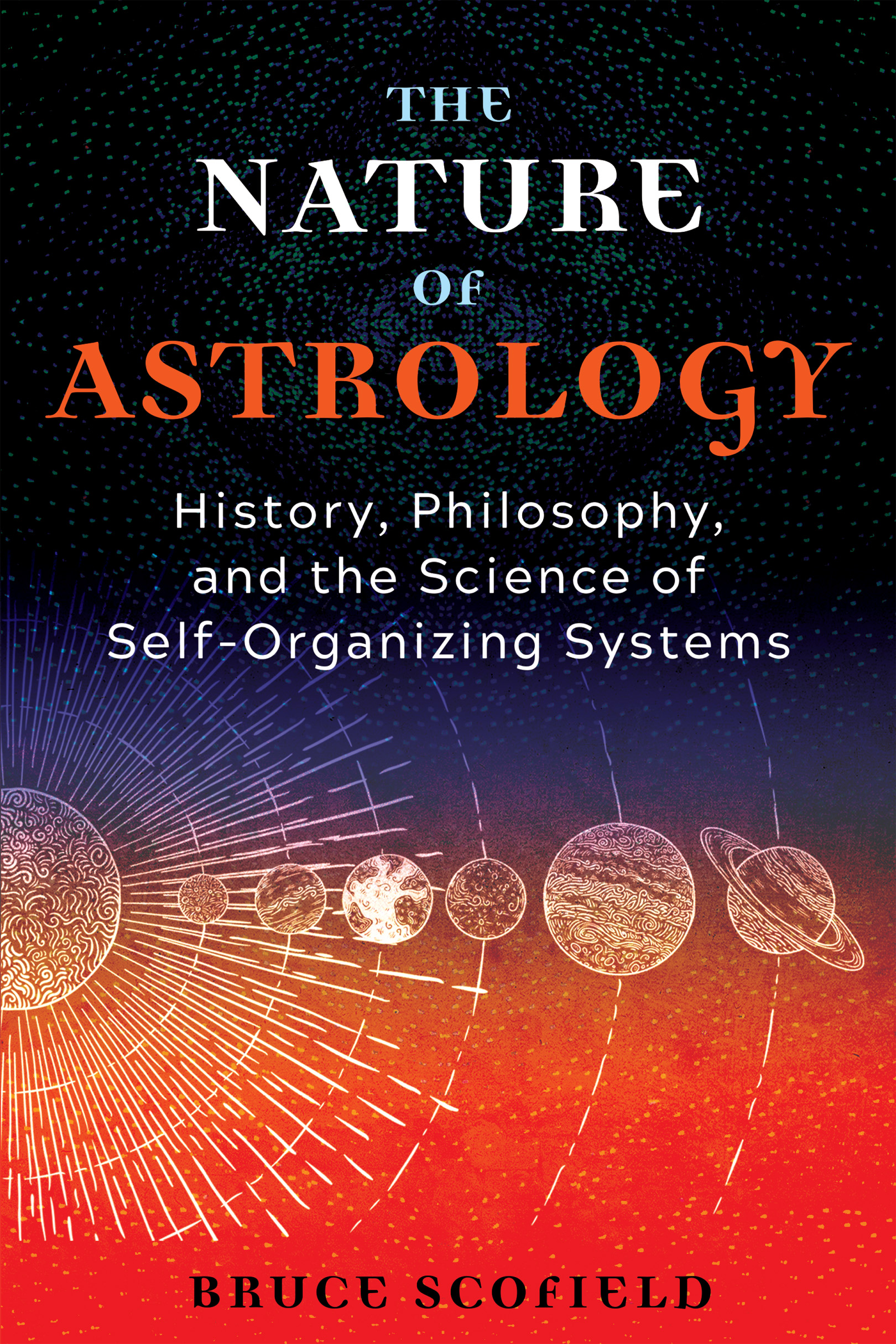
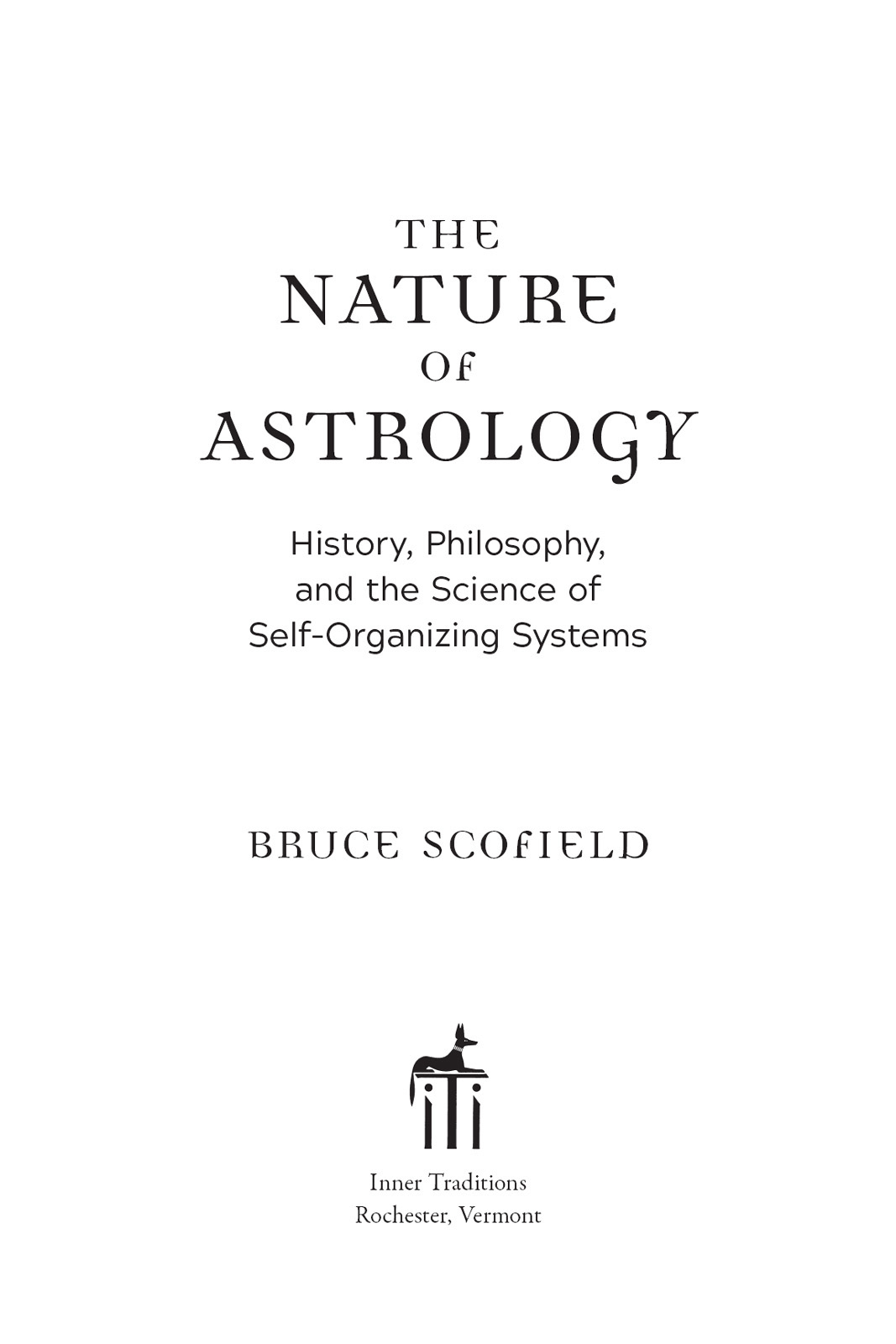
THE OF NATURE ASTROLOGY

This is an incredible work! Others have written histories of astrology, but none of them have been histories of astrology as well as comprehensive discussions of the sociology of astrology throughout its history. This is not only a superb piece of intellectual history but also an eloquent discussion of where astrology is today and how it has gotten here. In particular Scofield has not only explained and defended astrology on philosophical as well as on other grounds, but in the course of doing so, he has also written a brilliant critique of what he calls the reductionist-mechanistic-materialist (RMM) view, which monolithically dominates modern science to the degree that any corpus of ideas that requires one to see outside of its influence is almost impossible to see. I believe he has given a brilliant critique of the RMM that is useful for any student of modern civilization, not just astrologers. This book I would say is his magnum opus.
ROBERT HAND, AMERICAN ASTROLOGER, HISTORIAN, AUTHOR, AND SCHOLAR
Bruce Scofield has crafted the authoritative text on natural astrologythe ancient branch of the subject in which terrestrial and celestial patterns intersect and manifest in the material world in such matters as weather and climate. Scofield artfully interweaves the history of the topic with both modern evidence and his own doctoral research on the relationship between Saturn cycles and temperature variation. The text is accessible, clear, and essential for anyone in search of a full and rounded understanding of astrologys claims and nature.
NICHOLAS CAMPION, PH.D., PRINCIPAL LECTURER AT THE INSTITUTE OF EDUCATION AND HUMANITIES AND ASSOCIATE PROFESSOR OF COSMOLOGY AND CULTURE AT THE UNIVERSITY OF WALES TRINITY SAINT DAVID
This is a book that astrologers have been awaiting for decades. Drawing on a bakers dozen of cutting-edge sciences, Bruce Scofield levels a potent challenge at pseudoskeptical critics of astrology by setting out a solid basis in reason and evidence for the ancient science of the stars.
JOHN MICHAEL GREER, AUTHOR OF THE TWILIGHT OF PLUTO
The Nature of Astrology is a valuable and timely contribution to the field and a necessary examination of the ongoing stigma against this complex and greatly misunderstood subject. Drawing upon historical and contemporary scientific research as well as his own investigations, Scofield methodically reveals how the Earth and the life upon it are influenced by the greater cosmic environment. He also presents an in-depth and rich history of astrology, including new and fascinating insights on astrologys decline, and provides possible avenues for its renewal. Scientists, academics, astrologers, and skeptics will all benefit from reading this captivating and edifying work.
MARLENE SEVEN BREMNER, AUTHOR OF HERMETIC PHILOSOPHY AND CREATIVE ALCHEMY
This scholarly tour de force deserves a place on the bookshelf of everyone seriously interested in the widest and deepest terrain of astrology. A richly rewarding read, it fulfills its promise of the history, philosophy, and science of astrology. It is actually a complete university education on the subject. Scofield does an excellent job of answering the perennial question: How does astrology work? Not only answering many of astrologys critics, he plots out an elegant future for this largely misunderstood and underappreciated branch of knowledge.
FREDERICK HAMILTON BAKER,AUTHOR OF ALCHEMICAL TANTRIC ASTROLOGY
Scofields well-researched arguments qualify him to assert that astrology is a science. He points out that it has an empirical body of knowledge and relies on the repeatable practices of brilliant ancient astronomers. These rules, procedures, and methodologies, perfected thousands of years ago but still understandable to this day, award that status. In this one book, a giant step in human understanding of natures solar system and its ultimate, supreme influence has been taken. Without doubt, it describes the genesis of all spiritual understanding and religious symbolism.
ALISON CHESTER-LAMBERT, AUTHOR OF ASTROLOGY READING CARDS
Bruce Scofields book lives up to its title, The Nature of Astrology. Building on his Ph.D. work in the geosciences (with a dissertation titled A History and Test of Planetary Weather Forecasting) at the University of Massachusetts (Amherst), Scofield discusses the scope, history, science, sociology, and philosophy of astrology. An important aspect is the place of astrology within a broader cultural and scientific context, which raises fundamental issues regarding the nature of science and scientific evidence, including alternatives to the reductionist-mechanistic-materialistic (to quote Scofield) trend in modern science. Scofield favors systems thinking that goes beyond reductionism; systems can exhibit emergent properties and self-organization. Astrology at its best can be considered a form of systems thinking that has been practiced for millennia. This is a fascinating book that anyone with a serious interest in the intellectual development of humanity should have in their library.
ROBERT M. SCHOCH, PH.D., AUTHOR OF FORGOTTEN CIVILIZATION: NEW DISCOVERIES ON THE SOLAR-INDUCED DARK AGE
ACKNOWLEDGMENTS
W hile hiking with friends many years ago, I was offered a job as a teaching assistant at the University of Massachusetts. The offer came from Lynn Margulis, a well-known scientist, and she added I would require a union card, that is a doctorate, which she would supervise. Lynn said that for my thesis I could test astrology using scientific methodologies as it relates to nature (not people) and that this could be the start of a book that explained a subject she knew nothing about. I took her up on the offer and focused my thesis on testing a single astrological claim in the field of astrometeorology, that Saturns position relative to other solar system bodies correlates with terrestrial weather in certain ways. This correlation is the kernel of The Nature of Astrology, a starting point for a broad look at how the cosmic environment shapes nature and how astrology is a way of studying this phenomenon. Without the initial encouragement and support of Lynn, however, this ambitious project would likely have never happened.
Not many others have traveled down the paths I take in this book, and it began and ended as a solo project. With only a few exceptions, my friends in science and those in the astrological community (I have been active in it for decades) were not very interested in my ideas. I do want to thank Jim MacAllister for reading the manuscript and making comments, and Barry Orr for critiquing content and spotting some grammatical mistakes in Chapter 13. Most important to me has been the support and tolerance given to me by my wife, Nancy. I thank her for putting up with the relentless obsessions with tidbits of science, history, and philosophy that were required to accomplish this project.
Contents
PREFACE
T here are certain things about humans that make getting to the facts not so easy. One is that this upright mammal will believe almost anythingand this has been true since the beginning of recorded history right through to the present. Examples include beliefs in the power of supernatural gods and demons, confidence of an upcoming apocalypse, and trust placed in countless bizarre medical remedies. Weve come a long way since the origins of settled life, yet even today a sizable number of Americans believe evidence-free political propaganda and conspiracy theories, one of which states that a secret cabal of Satan-worshiping, cannibalistic pedophiles, composed of Democrats, is running a global child sex-trafficking ring. All these beliefs were, or are, considered normal by the community that holds them. It appears that allegiance to irrational beliefs has survival value probably because it serves to create tribal solidarity, and this unification, by itself, can be enough to negate obvious facts that disturb the status quo. Another trait of the species is that people automatically form hierarchies and establish rank in social situations. From a sports team to a nation state, this is accomplished using whatever differences are available between individuals, whether they be visual cues, genetics, preferences, abilities, money, connections, or knowledge. These two traitstribal beliefs and social rankingshave served to bind humans into larger groups that are better suited to survive the perils of the environment than just a few individuals. They are ancient and instinctive traits, and they continue to have a powerful influence on what we do or dont do, including the hard work of getting to the facts and determining what is real and what isnt.
Next page

